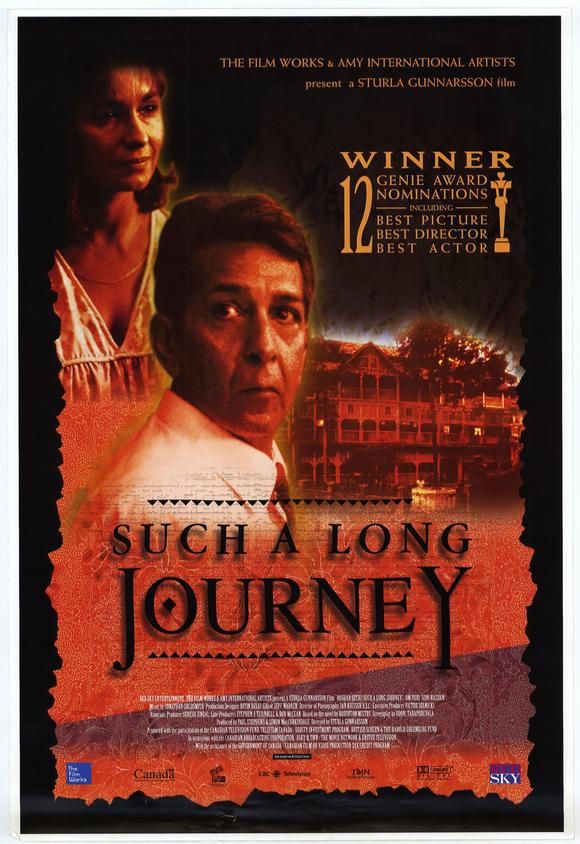
Such a Long Journey is humanism, fatalism and mysticism all mixed up in one big, chunky mess that looks like an impressionist's painting and smells like pee. It's not particularly coherent, but that seems to be its aim: a pastiche of life, in all its warty glory, from a cross-section of a Bombay shawl in paranoid 1970s Emergency India.
Based on the book by Rohinton Mistry, it carries the flavors of Mistry's other works (e.g. A Fine Balance
The strength of Mistry's story, and this adaptation, is how the fine line is juggled - or, shall we say, a FINE BALANCE is maintained - between what is real and what is fantasy. This isn't stereotypical post-colonial magic(al) realism (though that would have been nice too), but rather it's a sort of unreliable narrator - is Jimmy really a big-shot spy? Do the magical potions Dilnavaz concocts really what keep everyone safe? The film leaves these things ambiguous - sometimes frustratingly so. But that ambiguity, like the incoherence, is all part of the package. Look at this! Life is crazy! Just as the chawl's wall to the street goes from over-frequented public urination spot to religious mural and ad hoc shrine, things often just don't make sense. And you're not even sure how to feel about it.
Indeed, religion is shown to be a fragile, important shield against the urine of life. When Gustad, in a slightly Groundhog Day way, becomes the holiest, shiniest, forgivingest (and, if you'll forgive us the Judeo-Christian default, the Jesusiest!) humanist we've done ever seen, he is shown to finally make some progress. Suddenly, he can laugh. He can cry. He has emotional breakthroughs. The wall doesn't smell like pee anymore.
Poor Roshan Seth was never really used as much as he could have been - we still recall, with great fondness and awe, the subtle genius of his performance in Gandhi (particularly when he confronts Gandhiji after one of the fasts) and the wondrous, dreamy texture of his take on a displanted Ugandan in Mississippi Masala (maybe the only movie where he gets his due). That man could be soulful, people! Such a Long Journey is a rare chance for him to play the lead, and it's intriguing and, ultimately, very satisfying to watch his complex, whiny, miserable, redeemable Gustad. Naseeruddin Shah and Om Puri - the usual stalwarts - have very little to do, but it's nice to see them (especially Om Om Om Puri!). Soni Razdan did what she could, given that - yet again - the ladies get relegated to being concerned mothers, shrewish crones, whores or sexualized secretaries. Oh yeah, or Indira Gandhi.
So, to conclude: domestic, lightly mystical (featuring the Sitars of Transcendentalism), and endlessly interpretable, this is a rare glimpse into middle class workaday urban India, when most other stuff tends to be Orientalist poverty porn or Karan Joharified NRI luxury fests.


2 comments:
I love Roshan Seth's voice. Its so beautiful and so unforgettable. I've never seen this movie- but thanks to your review, I realize I should!
I am a fan of Rohinton Mistry but I did not know the book was adapted to a movie. Thanks for the review.
Post a Comment